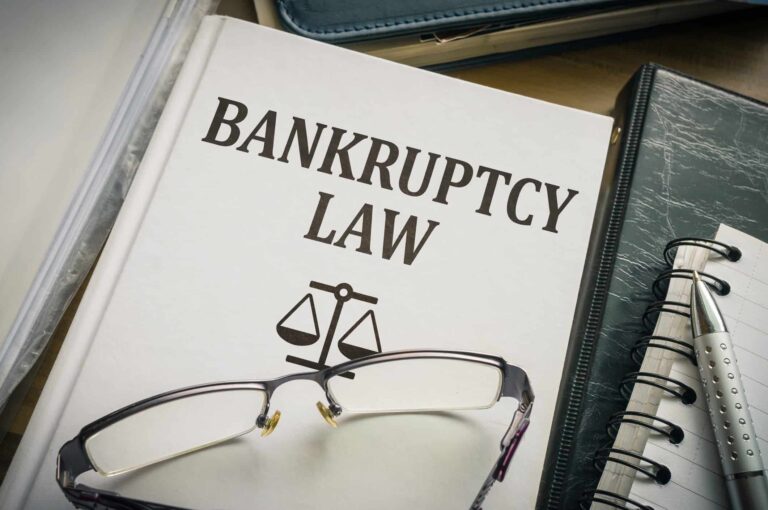Filing Bankruptcy Can Halt Wage Garnishments

If you’re already dealing with financial hardship, wage garnishment can make it much more difficult to pay your bills and get out of debt. However, you may be able to stop a creditor from garnishing your wages and even get some of the garnished wages back by filing for bankruptcy.
Our Nevada bankruptcy attorney team shares what you need to know about bankruptcy and wage garnishments.
Filing bankruptcy? You’re not alone. Contact our team to learn how we can help.
What is wage garnishment?
According to the U.S. Department of Labor, wage garnishment is defined as the legal procedure that allows an employer to withhold a person’s earnings to pay a debt. The withholding of the person’s earnings is required by a court order, which the employer or payroll department then pays directly to the creditor.
Creditors use wage garnishment to collect different types of debt, such as:
- Credit card debt
- Taxes
- Child support
- Alimony
- Medical bills
- Personal loans
- Student loans
How can filing bankruptcy stop wage garnishments?
When a person files bankruptcy, a court order called an “automatic stay” is put in place. This prohibits most creditors from collecting money. That means wage garnishments are prohibited as well, as long as the automatic stay is in place.
However, an automatic stay does not mean the garnishments won’t continue. You must take steps to discharge the debt if you want to avoid having the garnishment withheld from your earnings. Speaking with an experienced bankruptcy attorney early in this process can help you understand your rights and know what to do to ensure your financial security moving forward.
Does bankruptcy stop all garnishments?

A creditor has to ask the bankruptcy court to lift the stay, which will only be granted if there’s a valid reason. Also, the automatic stay does not apply to domestic support court orders, such as child support or alimony. These are regarded as priority debts that cannot be discharged by bankruptcy. Therefore, if your wages are garnished because of domestic support, the garnishment will not stop when you file.
It also depends on what type of bankruptcy you file:
Chapter 7
When you file a chapter 7 case, the automatic stay will stop all garnishments for dischargeable debt. However, it will not stop domestic support court orders.
Chapter 13
Filing chapter 13 bankruptcy will stop all garnishments because the debt will be included in your repayment plan. As long as you continue to make payments on time, there’s no reason to garnish wages.
When does the automatic stay end?
An automatic stay ends in one of three ways:
- You receive a discharge
- The case is dismissed with no discharge
- The court lifts the stay
If you receive a discharge that includes the obligation for wage garnishment, creditors are not allowed to resume garnishment after bankruptcy. However, if your case was dismissed without a discharge, garnishment orders can continue.
Can I get some of my wage garnishments back after filing bankruptcy?
Under some circumstances, you may be able to get back some of your wage garnishments, even if they were taken before you filed for bankruptcy. You may qualify to get the garnishments back if:
- Your wages were garnished in the 90 days prior to filing
- The garnishments exceed a certain amount
- You have adequate exemptions to cover them
If you meet these requirements, you can usually get the garnishments returned to you by filing a complaint in your bankruptcy.
To ensure garnishments stop as soon as you file for bankruptcy, notify your company’s payroll department of your filing. As most wage garnishments are handled by the local sheriff’s office, notify the sheriff or applicable office of your filing as well, so they can immediately stop garnishments.
We’re here to help. Schedule a free consultation to see if bankruptcy is the best option for you.
Are there other ways to stop wage garnishments?
While bankruptcy is an effective way to stop a wage garnishment order, there are other ways to do it, such as:
Petition the Court
You can try to reduce wage garnishment by petitioning the court to let them know that it’s causing financial hardships.
Exemptions
You may also qualify for an exemption and submit an exemption form to the state. Some examples of reasons to qualify include receiving food stamps or other government assistance.
Creditor Violations
It’s against the law for creditors to take more than a certain amount from a person’s earnings. If the creditor took more than the legal amount or failed to follow the proper steps to inform you of the process, there may be something you can do to make them stop garnishing your wages.
The limit the creditors can garnish is the lower of these two options:
- 25% of disposable earnings
- The difference between disposable earnings and 30 times the federal minimum wage
In many cases, filing chapter bankruptcy is the quickest and most effective way to stop wage garnishment.
Free Consultation – Lawyer Bankruptcy Near Me

If you’re struggling financially and looking for options, filing bankruptcy can be a way to get control of your debt and start fresh. However, it’s essential that you understand the process and take the right steps to make the most of the situation.
Is there a bankruptcy attorney near me? The DeLuca & Associates law firm in Las Vegas has you covered. We offer free consultations to help you see which option is best for you and your family. We’ll guide you throughout the filing process to stop wage garnishment and get out from under your debt. Contact us today to schedule a free case evaluation to see if you qualify to file for bankruptcy.
Sources:
U.S. Department of Labor. Garnishment.






